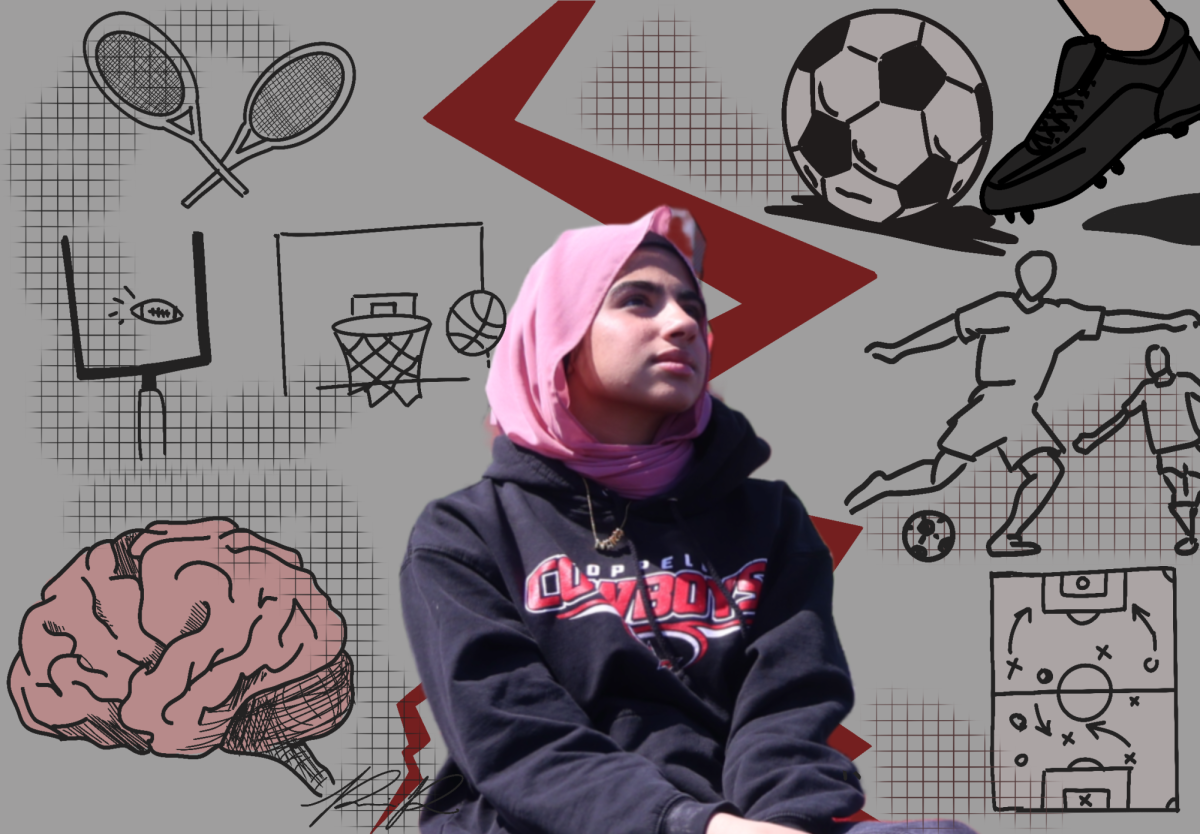“Reject the traditional roles of dog and cat people to be an insect person.” Scroll.
“Here is my ranking of the Spider-Man actors.” Scroll.
“Baggy jeans are the worst recent fashion trend.” Dislike. Scroll.
As the dim glow of my phone screen slowly radiates, I am confronted by opinion after opinion. My nightly doom scroll through Instagram is filled with people sharing their thoughts on anything and everything. Oftentimes, it’s my first exposure to controversial issues.
I would not label myself as a very opinionated person. It is not that I don’t have opinions, but my lack of assertiveness and self-assurance makes it easy for others to sway my thoughts with any semi-coherent argument.
Therefore, the content that I consume (which is most often on some sort of social media) is the backbone of how I craft my judgments.
The most recent issue I invested myself in was during the 2024 Summer Olympics, in which Australian breakdancer Rachael Gunn, otherwise known as “Raygun,” became a hot topic due to her low-scoring dance moves.
She began to face critical backlash beyond her dancing when various rumors arose about the illegitimacy of her selection during the Oceania qualifiers. As her dancing skills already put her in an unfavorable public light, my social media feed was soon flooded with increased disapproval for the Aussie.
But, as many reputable news sites soon revealed, those rumors weren’t true and I got first-hand experience in seeing how many people could fall for this trap.
From then on, the web of fallacies presents itself.
Where had most people gathered their false information? Social media.
Did they think about searching up the issue on a more reputable site? No, they trusted the majority’s consensus.
Was the consensus really the majority’s? Probably not, but it was the most interesting and therefore the most promoted.
I relent that negative opinions about a breakdancer halfway around the world backed by petty rumors are relatively inconsequential to the welfare of the world, even if they had held any weight. However, substitute this breakdancing candidacy scandal with a presidential candidacy scandal. Substitute myself with a young, newly eligible voter or a teenager building their political foundations. See the severity now?
My generation, Generation Z, is the first to grow up in this different world. While I, along with many of my peers, remember the times when books served as the most prominent sources of information, my “iGeneration” was the first to come to maturity in the digital age.
The younger generations are not so young anymore. Much of the latter end of Generation Z will be voting in their first election this November and Generation Alpha has started to enter high school. Soon enough, we will be the ones running the world.
I don’t have many strong opinions, however, I have firmly built the belief that we need differing opinions to progress. Healthy discourse is the key to producing new ideas and solutions. But, this discourse also needs to be based on factual information rather than what’s trending.
My purpose in sharing is not because I’m claiming technology marks the ruin of humanity or that opinions shouldn’t be shared publicly on the internet. Technology has expanded our access to information infinitely, and those who were previously voiceless can use social media as a powerful platform. However, the not-so-positive correlation between the rise of internet access and the wildfire spread of misinformation is worrying.
While my peers and I are still young, we can start to be more proactive about this misinformation epidemic. Intentionally seeking out information on candidates, reading articles from reputable news sites to build our political foundation and learning as much as we can about our infinite world are all things that we students can do.
Our world continues to grow and the amount of opinions undoubtedly will too. The ever-flowing stream of judgments and beliefs will continue to funnel into a sea of opinions.
I genuinely hope that, as this sea grows, those sparse glimmers of information will soon become the expectation rather than the exception.
Follow @CHSCampusNews on X.

















